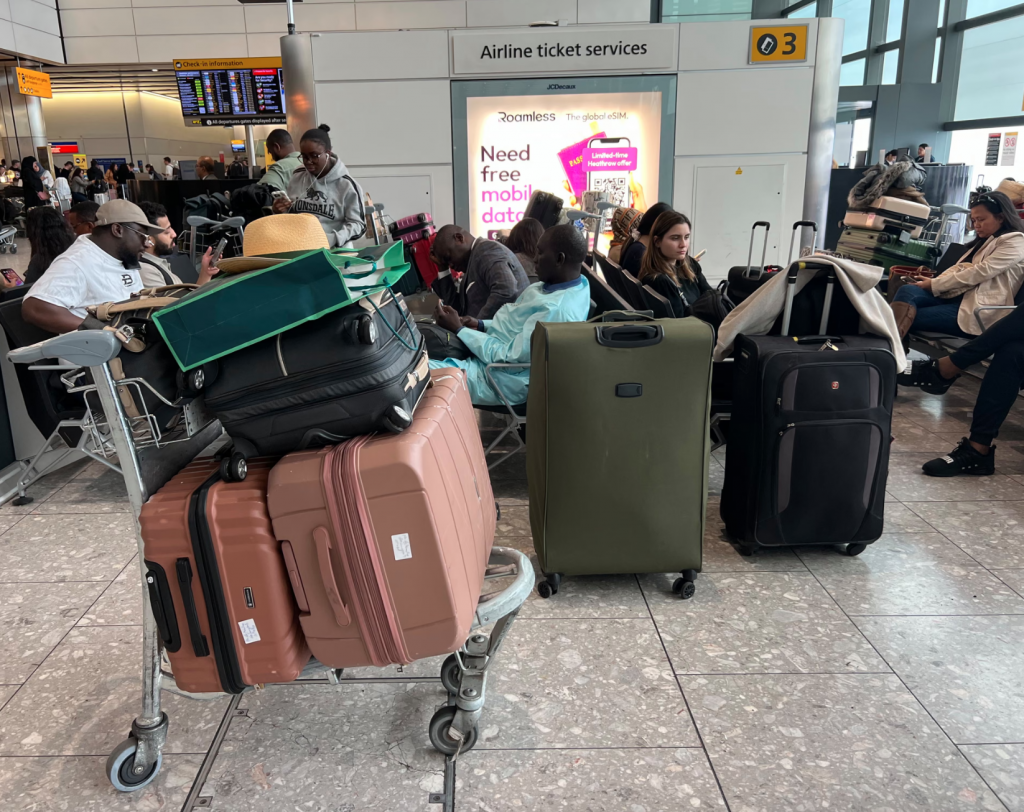A cyber-attack targeting Collins Aerospace, a provider of check-in desk software, caused widespread disruption across several major European airports over the weekend. The incident forced airlines to revert to manual check-ins, creating delays and cancellations that are expected to continue into the beginning of the week.
As a result, Brussels Airport requested airlines to cancel half of their scheduled departures for Monday, citing that Collins was “not yet able to deliver a new secure version of the check-in system.” (Jolly, 2025). On Sunday, 86% of flights at Zaventem, one of Brussels’ main airports, were delayed, with delays ranging from 15 minutes to four hours. To mitigate congestion, 25 flights were cancelled on Saturday and 50 on Sunday, amounting to 15% of scheduled services for the weekend.
At the same time, Heathrow experienced significant delays but avoided large-scale cancellations. By Sunday afternoon, 90% of its more than 350 flights were delayed by an average of 34 minutes, with only six cancellations recorded. Although thirteen flights had been cancelled the previous day, airport officials emphasised that most operations continued, supported by additional staff to assist passengers. Unlike Brussels, Heathrow has not requested cancellations for Monday, and the majority of flights are expected to operate.
Delays in Berlin’s airport

Berlin airport was also heavily affected, reporting delays in 73% of its approximately 200 scheduled flights. Hence, passengers were advised to use online and self-service check-ins as well as fast bag drop services to reduce waiting times. Similarly, Dublin airport confirmed disruptions, noting that most flights were delayed.
According to Collins Aerospace, the disruption was linked to a “cyber-related incident” affecting its Muse software, which manages electronic check-in and baggage drop systems. Collins, owned by the aerospace and defence conglomerate RTX, stated that it was “actively working to resolve the issue and restore full functionality.”
In a broader context, the attack on Collins adds to a recent series of cyber incidents affecting large companies, including Jaguar Land Rover, Marks & Spencer, and the Co-op. Meanwhile, the UK’s National Cyber Security Centre confirmed it was coordinating with Collins, UK airports, and law enforcement to assess the impact of the incident.
References
Jolly, J. (2025, September 21). Disruption continues at Heathrow, Brussels and Berlin airports after cyber-attack. The Guardian. https://www.theguardian.com/business/2025/sep/21/delays-continue-at-heathrow-brussels-and-berlin-airports-after-alleged-cyber-attack
